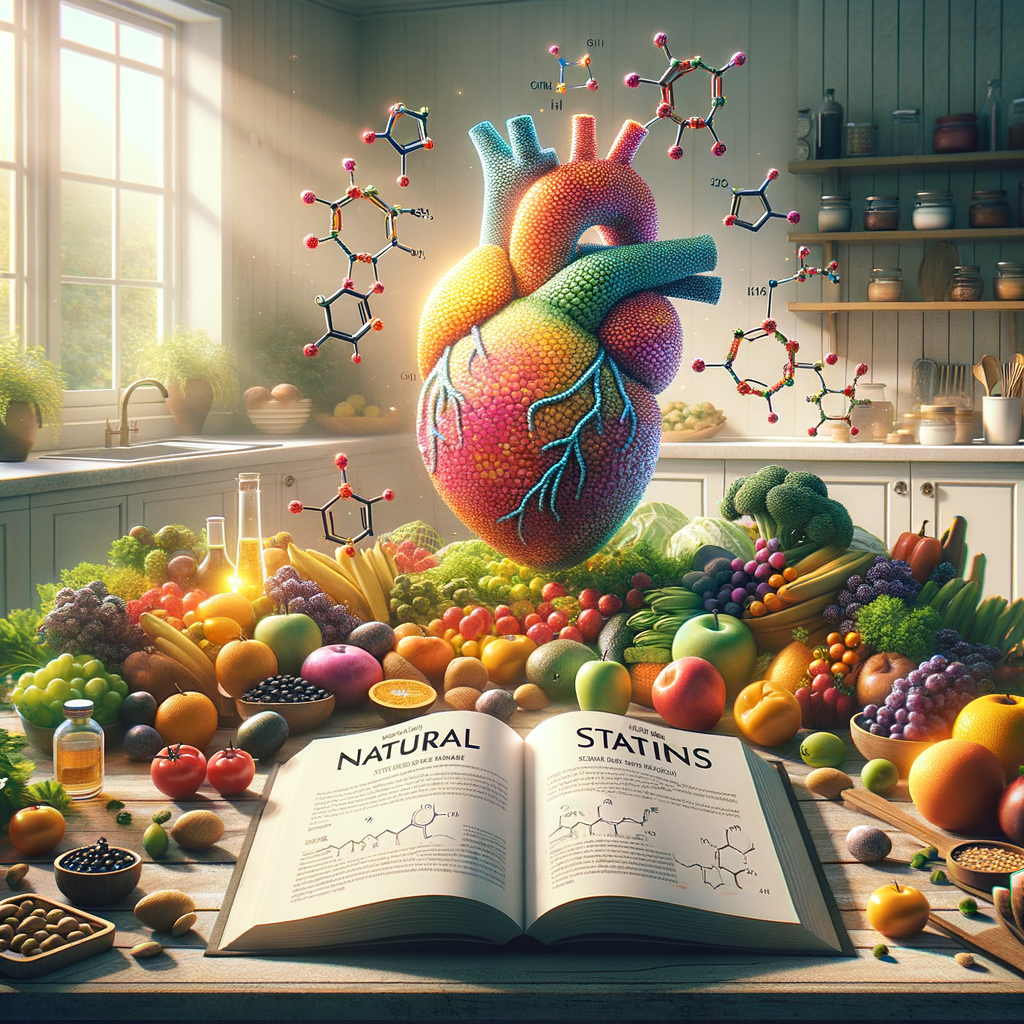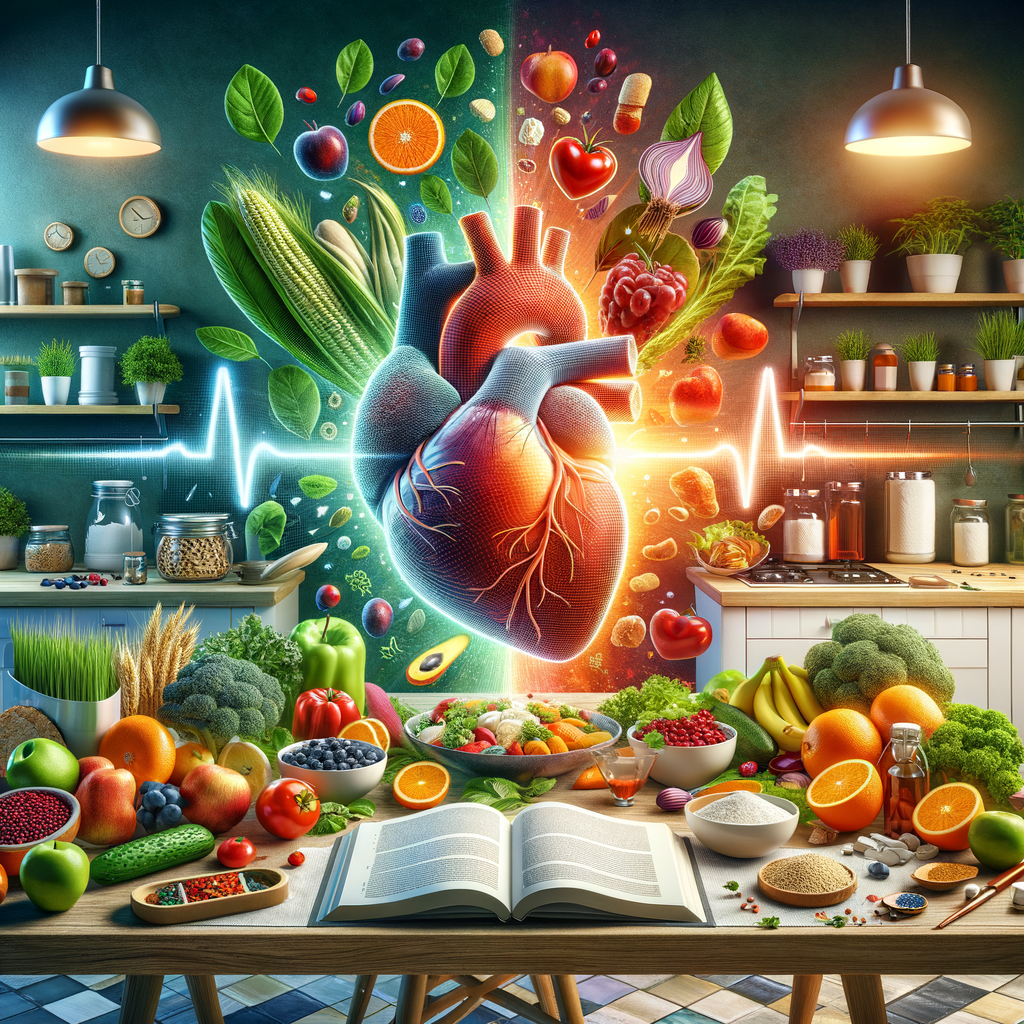Natural Statins – Unveiling Sources and Health Benefits
In recent years, there has been a growing interest in natural statins as an alternative to conventional medications for managing cholesterol levels. While pharmaceutical statins have been widely used, many individuals are now turning to the natural world to explore how certain foods and compounds could help them achieve similar health benefits. This blog post will delve into what natural statins are, their sources, health benefits, and guidelines for incorporating them into your diet.
Understanding Natural Statins
Natural statins are compounds found in various foods that can help lower cholesterol levels in the body. These naturally occurring substances function similarly to prescription statin medications, working by inhibiting the enzyme HMG-CoA reductase, which plays a crucial role in cholesterol synthesis. Unlike synthetic statins, natural statins come with fewer side effects and are often easier to incorporate into everyday diets.
How Natural Statins Work
The mechanism by which natural statins operate is quite similar to that of pharmaceutical statins:
- Cholesterol Reduction: They decrease the body’s ability to produce cholesterol, leading to lower levels of low-density lipoprotein (LDL), often referred to as “bad cholesterol.”
- Anti-Inflammatory Properties: They can also reduce inflammation within the arteries, supporting overall heart health.
Sources of Natural Statins
Let us examine some of the main sources of natural statins, which can be integrated into a balanced diet:
1. Foods Rich in Soluble Fibre
Oats and barley are excellent sources of soluble fibre, helping to lower cholesterol levels through various mechanisms, including the binding of bile acids.
2. Red Yeast Rice
Red yeast rice is fermented rice that contains natural statins, specifically monacolin K, which has shown effectiveness in lowering cholesterol levels similar to prescription statins.
3. Fatty Fish
Fatty fish such as salmon, mackerel, and sardines are rich in omega-3 fatty acids, promoting heart health and reducing triglyceride levels.
4. Nuts and Seeds
Almonds, walnuts, and flaxseeds are associated with a reduction in cholesterol levels due to their healthy fat composition and fibre content.
Health Benefits of Natural Statins
The potential health benefits of natural statins extend beyond just cholesterol management:
- Heart Health: They promote cardiovascular health by lowering LDL cholesterol levels and reducing the risk of heart disease.
- Weight Management: Many foods high in natural statins are also low in calories and high in nutrients, supporting healthy weight loss.
- Versatility: Natural statins can be easily included in various dishes, providing both flavour and health benefits.
Incorporating Natural Statins into Your Diet
To maximize the benefits of natural statins, consider the following dietary strategies:
- Start Your Day with Oatmeal: Oatmeal is an excellent breakfast option, providing soluble fibre.
- Include Fatty Fish: Aim for at least two servings of fatty fish per week to enjoy omega-3 fatty acids.
- Snack on Nuts: Incorporate a handful of nuts or seeds into your diet for a healthy snack option.
- Experiment with Red Yeast Rice: Consider adding red yeast rice to your meals under a nutritionist’s guidance.
Conclusion
Natural statins offer a promising avenue for those seeking alternative methods for managing cholesterol levels and improving heart health. By incorporating a variety of natural sources into your diet, you can enjoy both flavour and significant health benefits. However, it’s crucial to consult healthcare professionals before making any substantial changes to your diet, particularly for those already on cholesterol-lowering medications. As the intersection of nutrition and health continues to evolve, natural statins could well play a pivotal role in our overall wellness journey.
There you have it… See what works for you…
Campbell M Gold
To Create Health, Wealth, Success, and Longevity through the Power of Your Subconscious Mind, Visit: Campbell M Gold.com
Visit The Store and see what else can be of help


